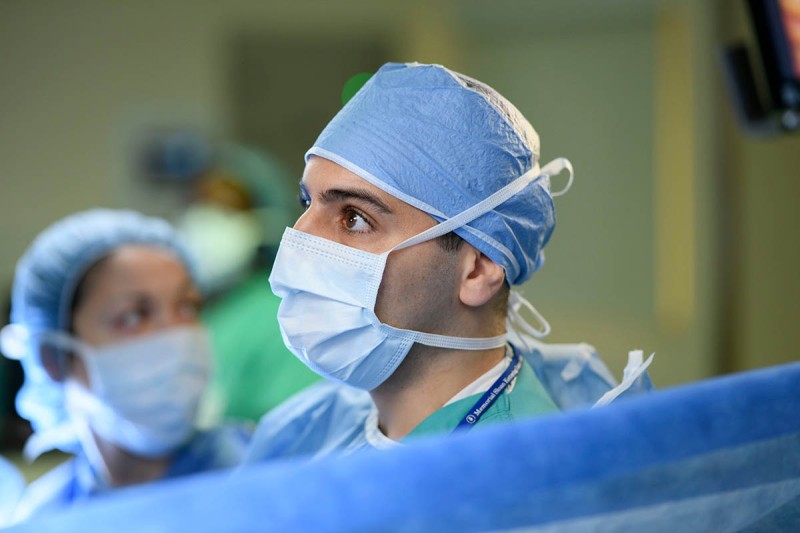
MSK’s team of colorectal surgeons, including Emmanouil Pappou, are experts at removing anal cancer. They will do everything possible to help you keep your quality of life.
Radiation therapy is often the main treatment for anal cancer, but your doctor may talk with you about surgery. This treatment option is based on the tumor’s size and location.
MSK’s colorectal and anal cancer surgeons are very experienced at removing a tumor without harming nearby organs. They are experts in all stages and types of anal cancer, and in treating anal cancer that has come back (recurred). We also can help if the disease did not respond to other treatments.
The 2 main types of surgery for anal cancer are:
- Local resection
- Abdominoperineal resection
Local Resection for Anal Cancer
A local resection is for small tumors in the anal margin (outer layer of the anus) that have not spread. Your surgeon removes the tumor and a little tissue around it to get all the cancer cells.
Most people have normal bowel action (being able to poop) after a local resection. In rare cases, it can cause problems with how well you can control your bowel. Your care team of colorectal surgeons, physician assistants, and nurses can help. They can offer special tools or treatments to get you back to normal as soon as possible.
Abdominoperineal Resection for Anal Cancer
Chemoradiation is now the main treatment for anal cancer. In the past, it was abdominoperineal resection (APR). APR is used for anal cancer that did not respond to radiation or chemotherapy, or that came back after treatment.
During an APR, your surgeon removes the anus, rectum, and lower part of the colon. If the tumor has spread, they may also remove nearby lymph nodes. Your surgeon makes an opening called an ostomy. They bring a piece of your intestine to the outside of your abdomen (belly). This is where stool and gas will leave your body. When a piece of the colon is used to create an ostomy, it’s called a colostomy. Some ostomies are permanent.
MSK colorectal surgeons use minimally invasive methods with robotic tools. Minimally invasive means we use small incisions (cuts). This method can help you recover faster, with less pain and risk of complications. MSK performs many robot-assisted rectal and anal cancer procedures, among the highest number in the country.
Your care team will support you and teach you to take care of your ostomy. You will meet with a nurse who has special training in ostomy care. We can also connect you to a support network of people who also had this surgery. They can help you understand life after an APR.
We’re available 24 hours a day, 7 days a week

